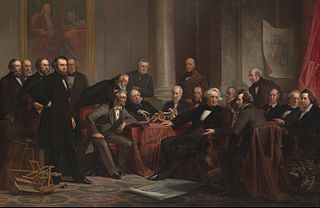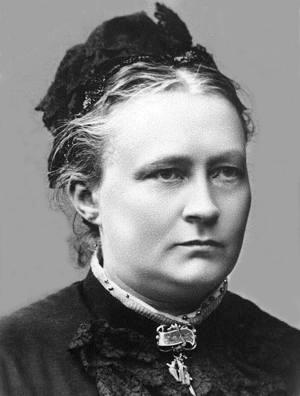Related Research Articles

1844 (MDCCCXLIV) was a leap year starting on Monday of the Gregorian calendar and a leap year starting on Saturday of the Julian calendar, the 1844th year of the Common Era (CE) and Anno Domini (AD) designations, the 844th year of the 2nd millennium, the 44th year of the 19th century, and the 5th year of the 1840s decade. As of the start of 1844, the Gregorian calendar was 12 days ahead of the Julian calendar, which remained in localized use until 1923.
This article contains information about the literary events and publications of 1911.
This article contains information about the literary events and publications of 1920.
This article contains information about the literary events and publications of 1909.
This article contains information about the literary events and publications of 1897.

This article contains information about the literary events and publications of 1887.
This article contains information about the literary events and publications of 1889.
This article contains information about the literary events and publications of 1884.
This article contains information about the literary events and publications of 1883.
This article contains information about the literary events and publications of 1813.
This article contains information about the literary events and publications of 1800.
This article contains information about the literary events and publications of 1772.
This article contains information about the literary events and publications of 1724.
This article contains information about the literary events and publications of 1777.
This article contains information about the literary events and publications of 1787.

Minna Canth was a Finnish writer and social activist. Canth began to write while managing her family draper's shop and living as a widow raising seven children. Her work addresses issues of women's rights, particularly in the context of a prevailing culture she considered antithetical to permitting expression and realization of women's aspirations. The Worker's Wife and The Pastor's Family are her best known plays, but the play Anna Liisa is the most adapted to the films and operas. In her time, she became a controversial figure, due to the asynchrony between her ideas and those of her time, and in part due to her strong advocacy for her point of view.
Nationality words link to articles with information on the nation's poetry or literature.
Nationality words link to articles with information on the nation's poetry or literature.
Nationality words link to articles with information on the nation's poetry or literature.
References
- ↑ "Saima". Digital Collections. The National Library of Finland . Retrieved 22 January 2024.
- ↑ "Saima nro 1, 4.1.1844". Selected Works of J V. Snellman. Retrieved 22 January 2024.
- ↑ Standiford, Les (2008). The Man Who Invented Christmas: How Charles Dickens's A Christmas Carol Rescued His Career and Revived Our Holiday Spirits. New York: Crown. p. 168. ISBN 978-0-307-40578-4.
- ↑ Christopher John Murray (2004). Encyclopedia of the Romantic Era, 1760-1850. Taylor & Francis. p. 1158. ISBN 978-1-57958-422-1.
- ↑ Hatfield, C. W., ed. (1941). The Complete Poems of Emily Jane Brontë. Columbia University Press.
- ↑ David Coward. A History of French Literature. Ardent Media. p. 779.
- ↑ Ron Engle; Tice L. Miller (6 May 1993). The American Stage. Cambridge University Press. p. 90. ISBN 978-0-521-41238-4.
- ↑ Jeffrey L. Sammons (1979). Heinrich Heine: A Modern Biography. Princeton University Press. pp. 275–278.
- ↑ Alice Mangold Diehl (1908). The True Story of My Life: An Autobiography by Alice M. Diehl, Novelist-writer-musician, with a Photogravure Portrait. J. Lane. p. 4.
- ↑ Maijala, Minna. "Minna Canth (1844–1897)". Klassikkogalleria. Kristiina Institute, University of Helsinki . Retrieved 8 December 2020.
- ↑ "The Nobel Prize in Literature 1921". www.nobelprize.org. Retrieved 28 September 2023.
- ↑ Roche, James Jeffrey (1 January 1891). "Life of John Boyle O'Reilly". Mershon. p. 79. Archived from the original on 12 March 2017. Retrieved 8 March 2017– via Google Books.
- ↑ "British Women Writers of Fiction". Furrowed Middlebrow. 1 January 2013. Retrieved 16 November 2020.
- ↑ Gerard Manley Hopkins (1960). Gerard Manley Hopkins. Ardent Media. p. 1.
- ↑ Chushichi Tsuzuki (15 September 2005). Edward Carpenter 1844-1929: Prophet of Human Fellowship. Cambridge University Press. p. 6. ISBN 978-0-521-01959-0.
- ↑ Friedrich Wilhelm Nietzsche (1996). Selected Letters of Friedrich Nietzsche. Hackett Publishing. p. 3. ISBN 0-87220-358-1.
- ↑ Lee Templin Hamilton (1991). Robert Bridges: An Annotated Bibliography, 1873-1988. University of Delaware Press. p. 11. ISBN 978-0-87413-364-6.
- ↑ William Fleming Stevenson (1873). Hymns for the Church and Home. H. S. King. p. 85.
- ↑ John Sutherland (13 October 2014). The Longman Companion to Victorian Fiction. Routledge. p. 99. ISBN 978-1-317-86333-5.
- ↑ This article incorporates text from a publication now in the public domain : Chisholm, Hugh, ed. (1911). "Nodier, Charles". Encyclopædia Britannica . Vol. 19 (11th ed.). Cambridge University Press. p. 731.
- ↑ Albert Tezla (1970). Hungarian Authors; a Bibliographical Handbook. Harvard University Press. p. 322. ISBN 978-0-674-42650-4.
- ↑ University of Cambridge (1859). A Complete Collection of the English Poems which Have Obtained the Chancellor's Gold Medal in the University of Cambridge. Macmillan. pp. 15, 247.